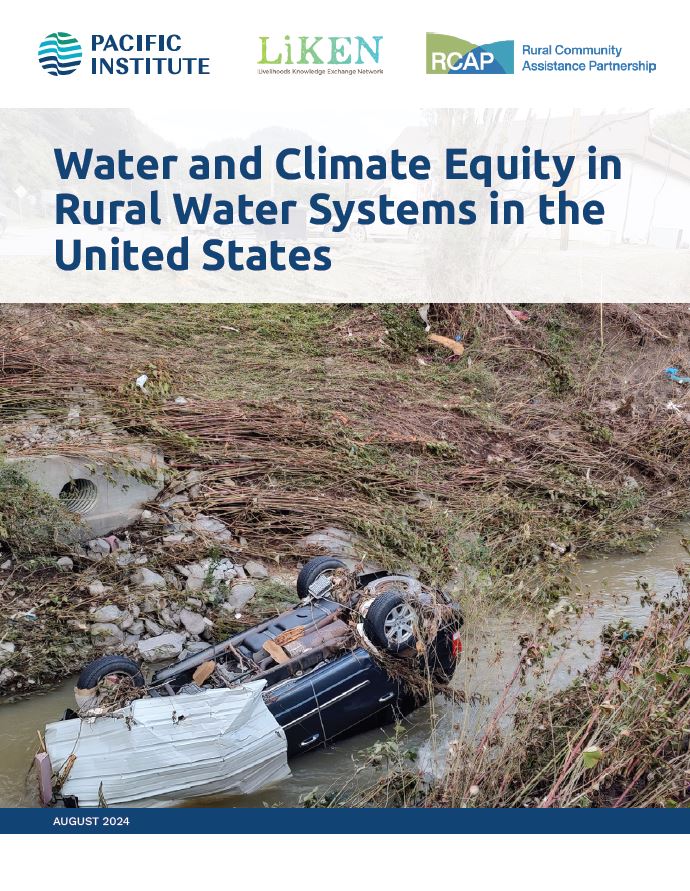Water and Climate Equity in Rural Water Systems in the United States

Water and Climate Equity in Rural Water Systems in the United States
Overview
Climate change is leading to devastating consequences for water and wastewater systems in rural communities across the United States. Many factors converge to create inequitable risks, and decision-makers must grapple with complex realities when devising and implementing strategies to build resilience. This complexity requires evidence-based approaches to collaborative problem solving. To better understand climate change impacts on water and sanitation in rural communities, the Pacific Institute, Livelihoods Knowledge Exchange Network (LiKEN), and Rural Community Assistance Partnership Incorporated (RCAP) partnered on a report titled, “Water and Climate Equity in Rural Water Systems in the United States.”
The report introduces an innovative community-centered framework to assist leaders in rural communities to build equitable water and wastewater systems that will be resilient to climate change in the future. It explores ways to nurture community-centered climate resilience in an era of mounting water crises and highlights these issues in the Southwest and Central Appalachia regions where a concentration of homes lack access to water and sanitation services. The research emphasizes how legacies of injustice and insufficient financial and technical resources in many rural communities create challenges to handle existing water issues. The report also underscores that climate change will continue to exacerbate many existing water-related challenges, including water affordability, safety, and access, as well as aging infrastructure and disaster recovery.
Key Takeaways
Key findings from the report include:
- Development pathways and legacies of injustice disadvantage many rural water and sanitation systems and make them highly susceptible to the impacts of climate change.
- Climate change is already having devastating impacts on rural water systems and communities through increased weather variability, extremes, and unpredictability, extreme heat and cold, heavy precipitation and catastrophic flooding, drought, wildfire, and declining water quality. The scientific community expects these to continue and worsen.
- An integrative community-centered and asset-based approach is necessary for better understanding and addressing climate vulnerability and resilience in rural water systems.
- While significant barriers and challenges exist related to inequities, funding, and technical or managerial capacity, for example, existing community-based social, natural, and physical assets provide opportunities to build on inherent community resilience for achieving equitable, climate-resilient rural water.
- Tailored and easily accessible technical assistance and tools can support rural communities in achieving equitable, climate-resilient water and sanitation systems.

